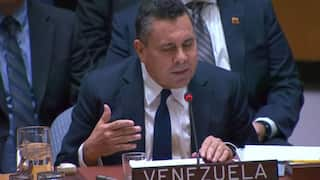Pakistan Detects 3 Mpox Cases Days After WHO Declared It A Global Health Emergency
Pakistan has detected three cases of mpox after the WHO declared it a global health emergency. The variant of the virus is yet to be confirmed, as sequencing is ongoing.

Days after the World Health Organization (WHO) declared mpox -- previously known as monkeypox virus -- a global public health emergency, at least
three cases of the viral infection were detected in Pakistan on Friday. A spokesperson of Pakistan's health ministry said the sequencing of one confirmed case was underway, and that it would not be clear which variant of mpox the patient had until the process was complete, according to a report by news agency Reuters.
Earlier on Friday, the health department in northern Khyber Pakhtunkhwa province in Pakistan said three cases of mpox were detected in patients on arrival from the United Arab Emirates. It was not clear whether the patient confirmed by the central health ministry was among the three.
Pakistan's Health Ministry Spokesman Sajid Shah, however, said that they had no confirmation of the new variant, but the sequencing of the sample of the confirmed patient was underway. "Once that's done, we will be able to say what strain is this," said Shah.
Meanwhile, Salim Khan, the director general of health services for Khyber Pakhtunkhwa, said three patients were in quarantine.
A new form of mpox virus has triggered global concerns as it reportedly spread more easily through routine close contact. WHO on Wednesday declared the recent outbreak of the disease as a public health emergency of international concern after a new variant of the virus was identified.
Global health officials on Thursday confirmed an infection with a new strain of the virus in Sweden and linked it to a growing outbreak in Africa, the first sign of its spread outside the continent.
On Friday, Director-General of WHO, Tedros Adhanom Ghebreyesus said identification of the first mpox clade 1b infection in Sweden underscores the need for affected countries to tackle the virus together. "We encourage all countries to enhance surveillance, share data, and work to better understand the transmission; share tools like vaccines; and apply lessons learned from prior public health emergencies of international concern in addressing the current outbreak," he said in a post on X.
Identification of the first #mpox clade 1b infection in Sweden underscores the need for affected countries to tackle the virus together.
— Tedros Adhanom Ghebreyesus (@DrTedros) August 16, 2024
We encourage all countries to enhance surveillance, share data, and work to better understand the transmission; share tools like vaccines;…
On Wednesday, WHO sounded its highest level of alert over the outbreak of the virus in Africa after cases in the Democratic Republic of Congo spread to nearby countries.
There have been reportedly 27,000 cases and more than 1,100 deaths, mainly among children, in Congo since the current outbreak began in January 2023.
The disease, caused by the monkeypox virus, leads to flu-like symptoms and pus-filled lesions. It is usually mild but can kill, with children, pregnant women and people with weakened immune systems, such as those with HIV, all at higher risk of complications.
Related Video
Punjab News: AAP Leader Shot Dead During Wedding in Amritsar





































